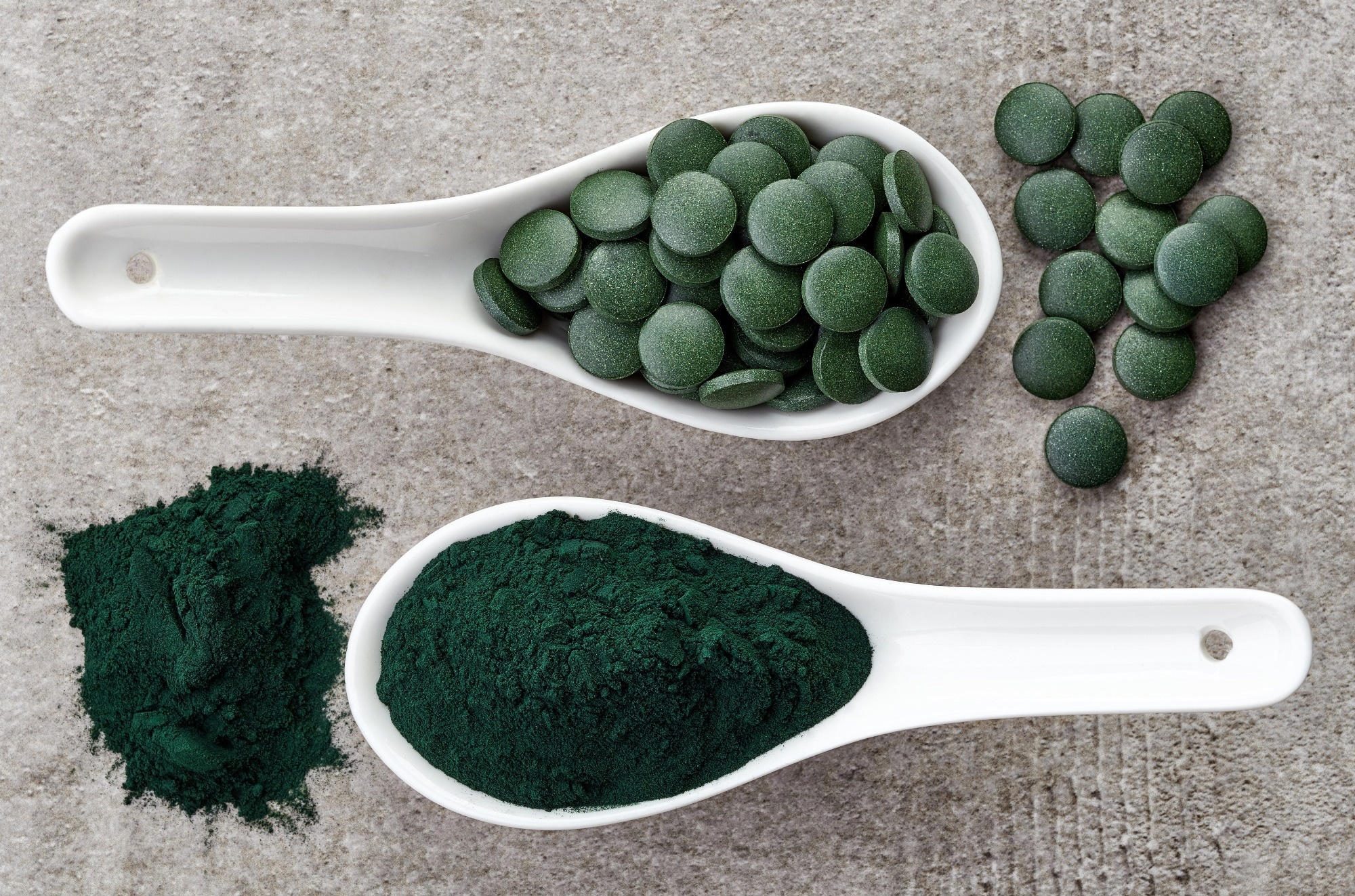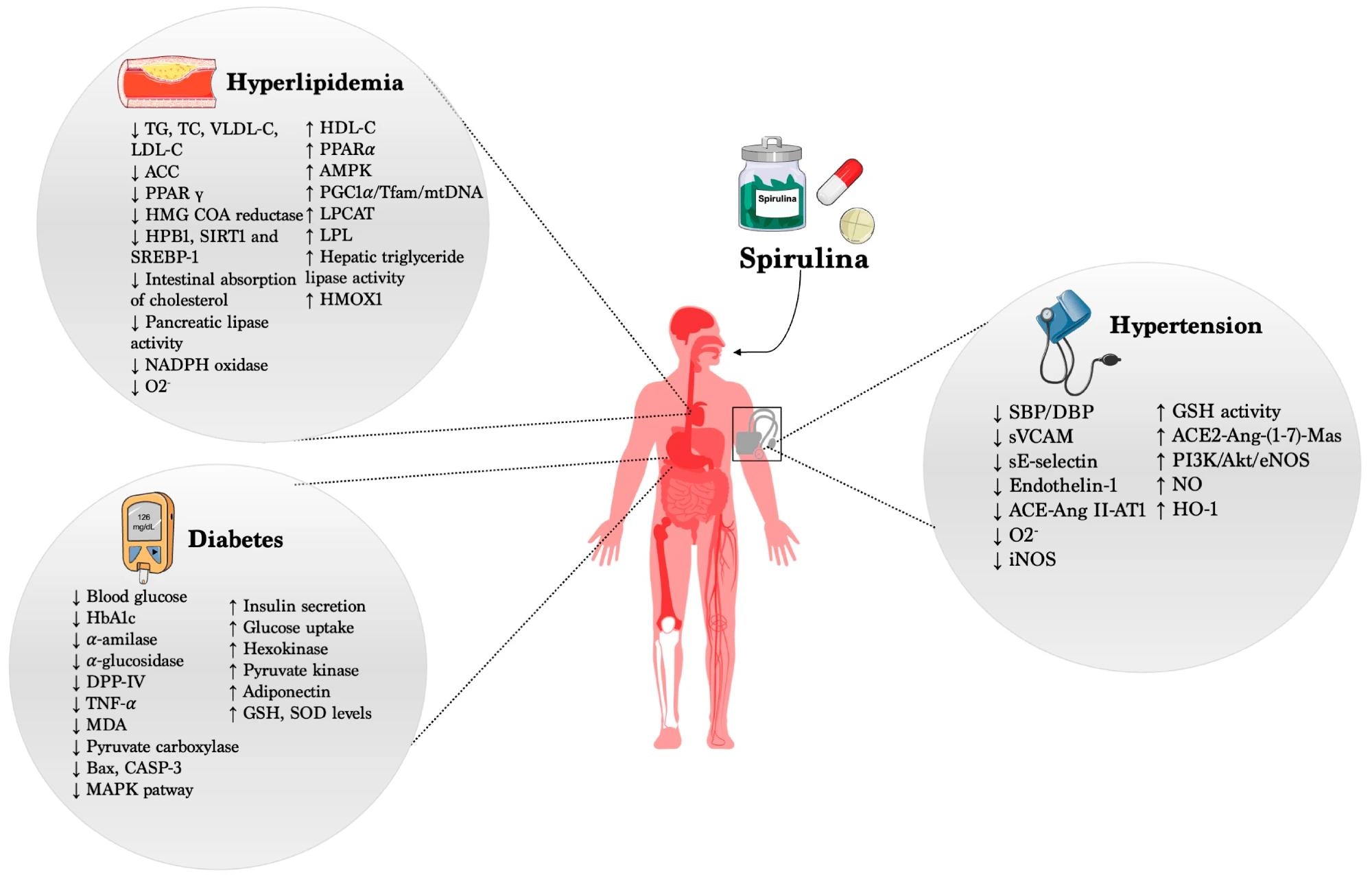In a recent study published in the journal Nutrients, a team of Italian researchers reviewed clinical and experimental findings from recent studies to understand the therapeutic contributions of Spirulina, also called blue-green cyanobacteria, in managing cardiovascular disease and its risk factors.
 Study: Beneficial Effects of Spirulina Supplementation in the Management of Cardiovascular Diseases. Image Credit: baibaz / Shutterstock
Study: Beneficial Effects of Spirulina Supplementation in the Management of Cardiovascular Diseases. Image Credit: baibaz / Shutterstock
Background
Although Spirulina has recently gained popularity as a ‘superfood’ because of its high nutritional content, the use of microalga in diet dates back to the ancient times of the Aztecs in Mexico. Spirulina is also known as blue-green cyanobacteria and are microscopic, photosynthesizing, filamentous microalgae of the genus Arthrospira, with A. plantensis and A. maxima being the two species most commonly used for their therapeutic and nutritional value.
They grow in the tropics, in alkaline lakes with high bicarbonate and carbonate salt concentrations, although they have been known to survive in extremely cold temperatures. Spirulina is considered a ‘superfood’ because 60% to 70% of its dry weight is composed of protein, while it is also abundant in minerals, vitamins, carbohydrates, phycocyanin, carotenes, and fatty acids. As a nutraceutical, it has been added to various types of foods, including sports supplements and baby foods, while the pharmaceutical industry has popularized it in the form of capsules, dehydrated powders, and tablets.
Therapeutic effects of Spirulina
Research indicates that Spirulina exhibits a wide range of therapeutic effects such as anti-inflammatory, antidiabetic, antioxidant, hypolipidemic, and neuroprotective properties. The antioxidant properties are attributed mainly to the pigments phycocyanin, β-carotene, diatoxanthin, and diadinoxanthin found in Spirulina.
Given its hypolipidemic and antioxidant properties, supplementation with Spirulina could be beneficial in lowering the risk of cardiovascular disease. Furthermore, diabetes, along with dyslipidemia and hypertension, is one of the risk factors for cardiovascular disease. Therefore, the present review examined how the cumulative health benefits of Spirulina could lower the overall risk of cardiovascular disease, which continues to be one of the major causes of mortality across the globe.
 Beneficial effects of Spirulina in CVDs.
Beneficial effects of Spirulina in CVDs.
Spirulina and hypertension
The impact of Spirulina in lowering the risk of hypertension and stroke has been studied extensively in clinical trials, and the findings from these studies have shown that daily consumption of Spirulina, even added to foods such as salad dressing, significantly reduced the diastolic and systolic blood pressure.
Consumption of Spirulina in the form of nutraceutical tablets also showed similar hypotensive results. Furthermore, animal studies using hypertensive rat models have shown that the high silicon content of Spirulina could be responsible for improving the elasticity of the arterial walls, along with angiotensin-converting enzyme-inhibiting properties that result in hypotensive effects.
Antidiabetic effects of Spirulina
Diabetes mellitus increases the risk of cardiovascular events such as heart failure, myocardial infarction, stroke, and peripheral vascular disease due to the micro- and macrovascular consequences of hyperglycemia. Cellular membrane integrity is also impacted by hyperglycemia, causing the peripheral tissues and liver to become insulin-resistant, increasing the generation of reactive oxygen species.
In comparison to metformin, which is the standard treatment for hyperglycemia during diabetes, supplementation with Spirulina is believed to not only lower the levels of circulating glucose but also have a positive impact on lipid metabolism, which is linked to diabetes. The hypoglycemic and hypolipidemic properties of Spirulina are believed to have a cumulative effect in decreasing the risk of cardiovascular disease.
The review discussed various clinical trials and studies using animal models of diabetes mellitus that have investigated the hypoglycemic properties of Spirulina and compared its efficacy in lowering blood sugar levels with that of metformin.
While the mechanism through which Spirulina impacts blood glucose levels is not yet fully understood, the researchers believe that it could be influencing the secretion of insulin from the β-cells in the islets of Langerhans in the pancreas or further downstream, facilitating the transport of glucose from blood to all the peripheral tissue.
Hyperlipidemia and Spirulina
Spirulina has also demonstrated hypolipidemic properties by lowering the concentrations of low-density-lipoprotein cholesterol and triglycerides in the plasma while increasing the levels of high-density lipoprotein cholesterol, with the beneficial effects not being dose-dependent or toxic at high concentrations.
Studies in animal models and overweight or obese human participants have reported significant benefits of Spirulina supplementation in lowering triglyceride levels, either as food additives or as nutraceutical pills or tablets. Spirulina was also found to be beneficial as an adjunct therapy to metformin in overweight diabetes patients.
Conclusions
Overall, this comprehensive review reported that consumption of Spirulina, either as an additive to regular foods or as a nutraceutical supplement, had numerous potential benefits, such as hypoglycemic, antioxidant, and hypolipidemic effects. However, the dosage and timing of Spirulina supplementation need to be standardized for optimal benefits in lowering the risk of cardiovascular disease.
In conclusion, based on these data, more rigorous studies should be planned in the future aiming to address these critical questions, putting the foundations for developing a common guideline on “how and when” to use Spirulina.
Journal reference:
- Prete, V., Abate, A. C., Pietro, D., Lucia, D., Vecchione, C., & Carrizzo, A. (2024). Beneficial Effects of Spirulina Supplementation in the Management of Cardiovascular Diseases. Nutrients, 16(5). DOI: 10.3390/nu16050642, https://www.mdpi.com/2072-6643/16/5/642

















